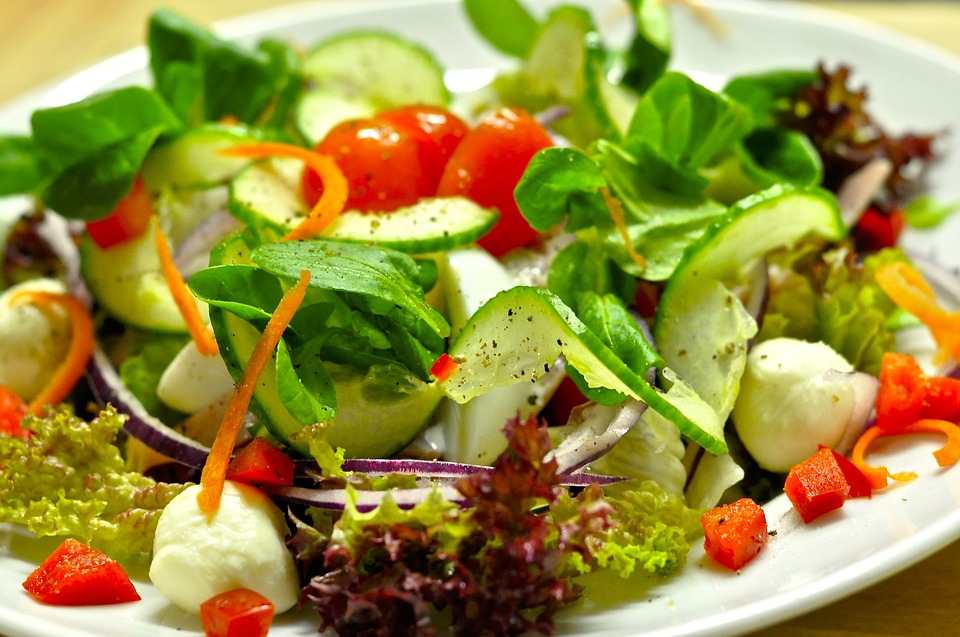How sweet it Is! Practically from the moment we’re born, we’re rewarded with sweet treats.
- We celebrate with sweets.
- We call each other “Sweetie,” “Sweetheart,” and “Sugar Pie.”
- We feed each other candy hearts to share our love.
Is it any wonder that as a nation we’re emotionally addicted to sweets?

In 2012, Forbes published an infographic that indicated Americans consume 130 pounds of sugar per year, or a little over a third of a pound per day. The infographic reported that brain scans indicate sugar is as addictive as cocaine.
If you or your family have alcoholism somewhere in your past, you may even be physically addicted to the sugar molecule.
As we all know, sweets in moderation, and sweets of the right kind, are fine. It’s only when we go overboard, consuming the wrong kinds of simple sugars daily or in binges, that we may find our bodies rebelling and breaking down, with devastating effects for our quality of life, our pocketbooks, and our energy.
Okay, but is it even possible to break our addiction to sweets?
If so, clearly, we’ll need to work on three levels: emotional, physiological, and lifestyle.
And we will, of course, need all the help we can get. In our naturopathic practice, we’ve found that vibrational remedies can be a good place to start.
For example, testing the effects of certain flower essences can help us identify the underlying reasons why we’re craving sweets. Flower essences can also help address and lower the craving.
A few examples.
- Agrimony can help reduce the urge to use food to mask unwelcome feelings.
- Chestnut Bud can help defuse emotional eating.
- Morning Glory can help control binge-eating.
- Mariposa Lily helps balance the emotions, deflating the tendency to use food as an emotional crutch.
These are just a few of over thirty flower essences with proven relevance for helping to diagnose and reduce sugar addiction.
EMOTIONAL FACTORS
The urge to party is a built-in feature of the human heart – we need to get together with others, and sugary foods definitely warm our hearts and help us feel more socially connected.
(Hey – NOBODY celebrates with celery and hummus!)
But surely there must be better, healthier ways to achieve the same social results. The trouble with using sugar to medicate our feelings is that the effect rapidly declines, so the need for sugar increases, resulting in physiological sugar addiction with all of the attendant devastating health detriments.

People often imagine that breaking a bad habit requires tremendous will power. But that isn’t necessarily true. Not if we think of will power as “energy plus attention, directed toward a desired end,” to borrow a definition of Paramhansa Yogananda’s.
This simple formula makes will power seem less intimidating and a lot more doable. That’s because the key word in the formula is “desire.”
If we WANT something strongly enough, we’re almost certain to achieve it.
That’s why it’s very, very important to get our emotions lined up behind our desire to change. It’s something we can start to do by gaining a thorough understanding of the serious suffering that results when we ravage our bodies by consuming unhealthy sugars.
Read, read, read! There are many excellent books at your local library that will put the fear of (wrong) sugar in you. If you can convince your mind and heart that simple sugar is not your friend, it will be a LOT easier to start making better choices. (Sample book titles on Amazon here.)
Now then, there are definitely certain social functions that few of us would ever really want to miss: birthday parties, holiday parties, workplace parties, restaurant outings with friends. And all of them are bound to include delicious tempting sweets.
In this context, here’s another useful saying of Paramhansa Yogananda’s: “Environment is stronger than will power.” In other words, the company we keep has a tremendous influence on the food we eat.
Therefore, before attending social events, it might be really good idea to do some deliberate planning – thinking clearly about the menu and the choices we’ll make, and maybe jotting them down as a supportive reminder.
It’s not that we’ll need to give up ALL our eating pleasures forever – it’s just that we’ll be healthier and happier in the long run by making a few tasty, very satisfying alternative choices.
Next on the sugar-fix agenda: Don’t skip meals. Skipping meals can lower your blood sugar, prompting your brain to demand a sugar fix. Also, poorly balanced meals that are high in simple carbs do the same. They leave us craving REAL nutrition. But the unfortunate tendency is to reach for a quick fix – a cookie (or a bagful) – instead of a salad with delicious dressing and healthy, nutrient-packed ingredients that reliably turn off the body’s appestat and satisfy our hunger for hours.
Amino acid supplements such as L-glutamine, as well as blood sugar-balancing formulas can often even-out our blood sugar levels and reduce the craving for sweets.
Nutritional lithium can also help reduce sugar cravings, particularly for people with a personal or family history of alcoholism.
HOW DOES SUGAR HARM US?
Sugar is unquestionably disruptive to our health.
Sugar is inflammatory, promotes body acidity, depresses the immune system, and feeds cancer cells. In plain language, the end-results of habitual consumption of simple sugars are pain, truly scary medical expenses (and experiences), greatly decreased mental and physical function, and a shortened lifespan.
Children don’t get sick on Halloween because they’re walking around outdoors on a chilly fall evening. Nor do they get sick on Easter from hunting eggs on a crisp spring day. They get sick because the holiday sugar they consume reduces their immune defenses BY UP TO 40 PERCENT FOR AS LONG AS FIVE HOURS, severely impairing their bodies’ ability to fight off harmful bacteria and viruses.
WHAT’S THE PRESCRIPTION?
Changing habits and “fixing” emotional needs is the first order of business. Going cold-turkey with stark deprivation hardly ever works. Reducing intake is usually not very effective either – it’s like giving an alcoholic a tiny sip of alcohol. Taking “just a little” sugar only awakens the sugar craving and causes us to eat more.
WHAT DOES HELP?

Increased consumption of vegetables and high-quality fats and proteins is our most powerful frontline weapon for reducing the body’s addictive craving for sweets. We’ll need to make a deliberate effort for the first 2-3 weeks, in order to break the body’s sugar/carb addiction. The upside is that eating healthy, nutrient-rich foods kills unnatural carb-and-sugar-cravings and marvelously improves our energy and mood.
Of course, many people can’t shake the idea that changing our diet is SO HARD. It’s why many of us simply turn to sugar substitutes.
In my next article, I’ll offer a detailed analysis of the effectiveness and healthiness of various alternative sugars and artificial sweeteners, along with my suggestions.
* * *
Read more about the medical services Dr. Connie offers here: http://www.naturopathichealthconsultations.com
